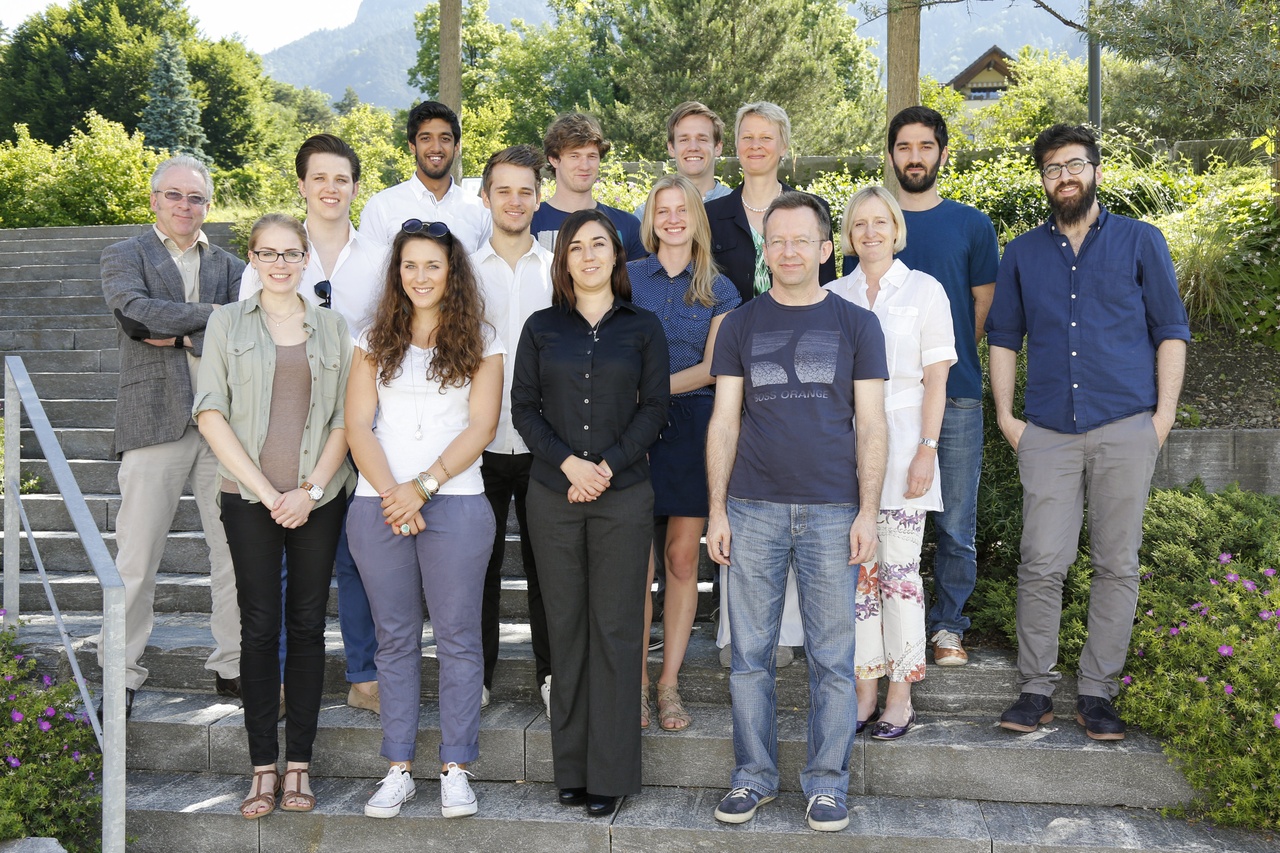Eleven students of architecture and economics threw their specialist skills and knowledge into the scales. Their ‘Energy Renovation’ project develops innovative solutions for the energy-efficient renovation of four houses in the energy city Vaduz.
Eleven students of architecture and economics threw their specialist skills and knowledge into the scales. Their ‘Energy Renovation’ project develops innovative solutions for the energy-efficient renovation of four houses in the energy city Vaduz.
‘The designs the young people came up with demonstrate that it is possible to renovate old houses economically, with energy efficiency and in contemporary style – and in such a way that they are equally suitable for families, senior citizens or students,’ says Martin Laukas, Energy City Officer for Vaduz. The architect was a member of the jury panel of four who passed judgment on the project ‘Energy Renovation – Residential Building’ of the University of Liechtenstein. This was a good opportunity for Vaduz to collect feasible ideas with a view to implementing sustainable energy policies.

The project teams of the University of Liechtenstein with members of the jury Bernhard Gasser, Dr. oec. Barbara Eisenbart, Martin Laukas and Barbara Dillenkofer-Keppler
Old buildings energy-optimised in contemporary style
The property management office of which Martin Laukas is the head looks after around 100 buildings – among them primary schools, kindergartens, church buildings, sport and activity centres, multipurpose halls, assembly rooms and apartments. Around a fifth of these need to be given an energy upgrade by Vaduz, which has been an Energy City since 2009. Laukas was able to obtain innovative suggestions from the University of Liechtenstein for four residential buildings: the Forsthaus building at Haldenweg 10, built in 1922, Herrengasse 34, built in the style of a country house in the same year, the Sieben-Reihen house on Floraweg and the apartment block at Landstrasse 80, the last two dating from 1972.
.jpg)
Nine students on the BA and MA architecture courses, and two on the business administration BA course, tried to think outside the frame in the summer semester of 2015. Opposites attract and inspire one another. That was what the three professors of the University of Liechtenstein were counting on in setting up the Energy Renovation project as an interdisciplinary model. This resulted in four innovative and economical concepts for sustainable building – along with a fund of practically useful expertise.
Three goals were central. First of all, the costs of rebuilding and renovation had to remain within tight financial limits. Secondly, the buildings had to be transformed from energy guzzlers to modest consumers. And finally what was at stake was to rebuild and renovate the houses in such a way that they could be adapted to future requirements. There were many fine points in virtue of which the students’ designs succeeded in making the four houses exceptional – above all because they show that economy of resources and successful design are not incompatible.
.jpg)
So the Haldenweg 10 building was given a Minergie standard rating, an entrance for persons with special needs and larger apartments with more natural light, while rents remain at a reasonable level. As a result of energy-efficient renovation, the Landstrasse 80 house has become a residential tower block for students. The Sieben-Reihen house on Floraweg acquired a roof garden and now holds fourteen apartments, which will increase the income from rent. When it came to Herrengasse 34, finally, the students restored the personality of the building in contemporary style, all with relatively low investment. Interdisciplinary collaboration gave the budding architects and business administrators a common idiom which the jury found convincing.
Architecture meets business administration
‘The students now understand how necessary the different disciplines are to daily economic life. And they also know how important it is to take the point of view of the customer – the project developer – into account and to communicate with him appropriately,’ said economics professor Dr. oec. Barbara Eisenbart, summing up the results of the project. The lecturer in the department of Cross-Faculty Elective Subjects, who is also responsible for Innovation, Leadership and Organisation at the University of Liechtenstein, knows how important networked thinking is. She can look back on her experience as a START UP Coach at the TECHNOPARK in Lucerne. University students, in her view, need to come up with more than just technical skills and knowledge. People capable of shaping society and the economy are called for – people who have an eye to the big picture.
.jpg)
Accordingly the university in Vaduz has been offering cross-faculty elective subjects since the autumn of 2014. This is a platform for interdisciplinary work, in teaching and research, on futuristic topics. ‘Energy Renovation’ was one of eight elective subject modules in the summer semester of 2015. ‘Courses with an emphasis on the practical, and consisting of interdisciplinary teams, are challenging,’ Bernhard Gasser recalls. Gasser has an MSc in climate engineering, and is a university lecturer in architecture and planning. And the architect and project manager Barbara Dillenkofer-Keppler adds: ‘Just like in everyday working life, it was a matter of finding a consensus between technology, architecture and economic aspects.’
Will the Energy City Vaduz realise the designs of the students in this form? At all events, Martin Laukas will be informing Mayor Ewald Ospelt about the outcome of these projects.
